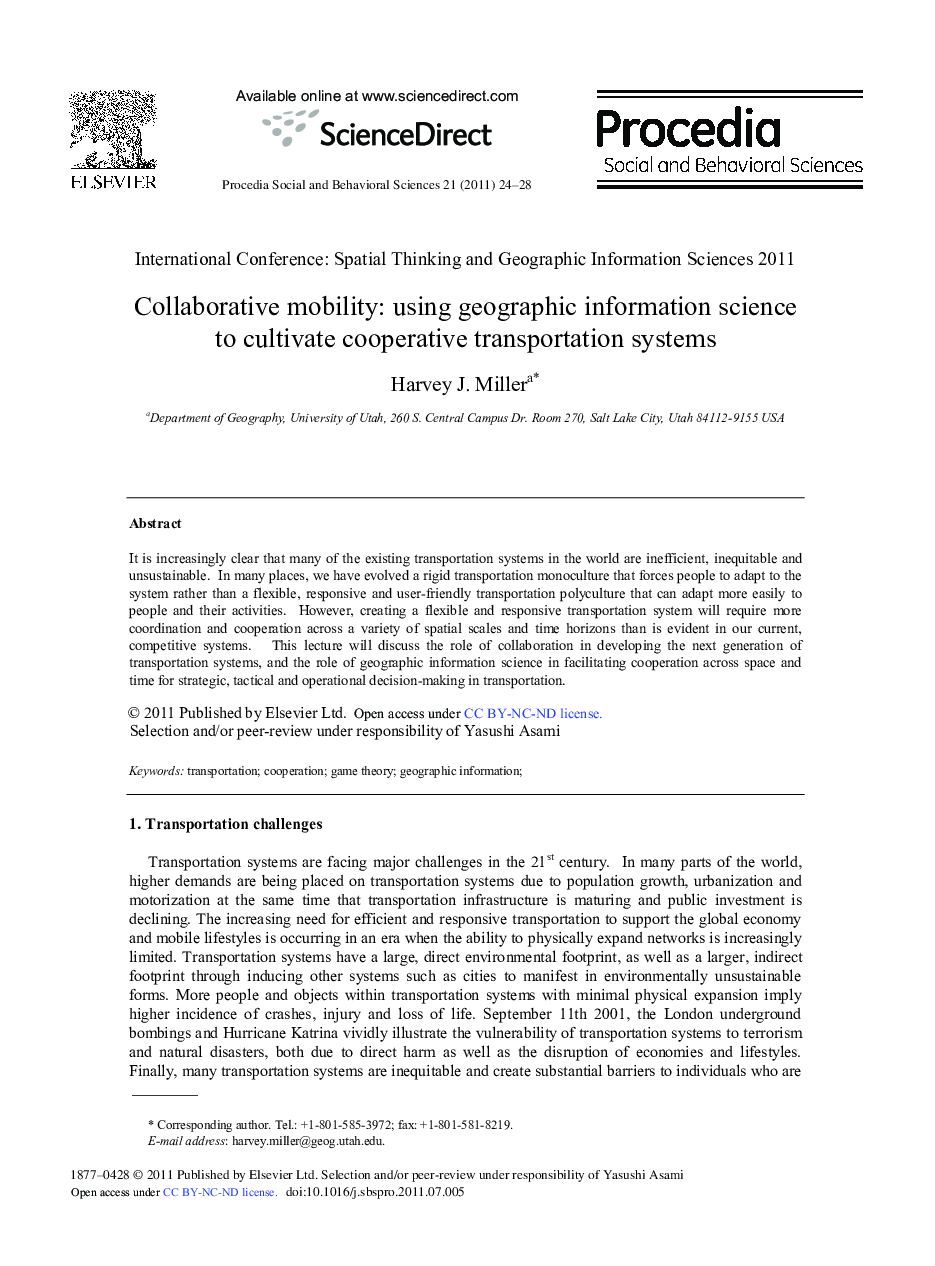| Article ID | Journal | Published Year | Pages | File Type |
|---|---|---|---|---|
| 1123922 | Procedia - Social and Behavioral Sciences | 2011 | 5 Pages |
It is increasingly clear that many of the existing transportation systems in the world are inefficient, inequitable and unsustainable. In many places, we have evolved a rigid transportation monoculture that forces people to adapt to the system rather than a flexible, responsive and user-friendly transportation polyculture that can adapt more easily to people and their activities. However, creating a flexible and responsive transportation system will require more coordination and cooperation across a variety of spatial scales and time horizons than is evident in our current, competitive systems. This lecture will discuss the role of collaboration in developing the next generation of transportation systems, and the role of geographic information science in facilitating cooperation across space and time for strategic, tactical and operational decision-making in transportation.
